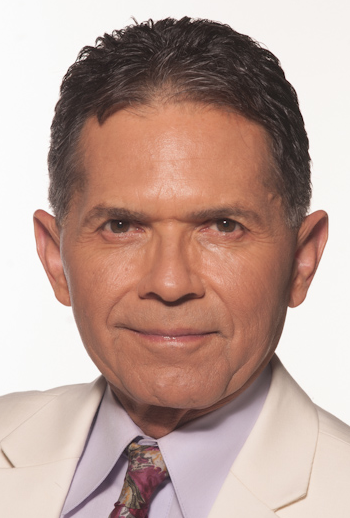Editor’s note: Amigos805 welcomes local guest columns, letters to the editor and other submissions from our readers. All opinions expressed in submitted material are those of the author and do not necessarily represent the viewpoint of Amigos805.
By David Magallanes • Guest contributor

David Magallanes
I see people being scolded on social media, and I see it in my own community: many residents seem to have garages packed full with “stuff worth some $300,” leaving no room for their “$30,000+ car.” The “scolders” then mock the residents who complain about their cars being plundered by nighttime prowlers (or even by criminals who wander the streets in broad daylight) when the vehicle should by all rights be safe within the garage where thieves are far less likely to relieve the owners of their property. With the exception of cases in which the vehicles (such as trucks and SUVs) are too big for garages built in the 1970s or before, I can’t argue with their logic. It doesn’t make sense to leave our most prized and valuable possessions outdoors, particularly at night, where they are exposed not only to pilfering vagrants, but also to the very elements: sunlight that peels the paint and bakes the interior, dew and humidity that rust the body of the car, wind and dirt that sandblast the exterior, children playing in the street with errant footballs, baseballs or basketballs. Add it all up and it spells “expensive.” It costs considerable money to repair the wear and tear beyond what we already inflict on our cars just driving around. Having said this, I realize there are times when people, for one reason or another, cannot park their car in the garage.
Analogously, much the same applies to our bodies. We are given a precision, highly intelligent machine at birth, and then many of us proceed through life exposing our bodies to “the elements” rather than “parking them safely in the garage.” If we allow it, we are easy victims of the very worst that environmental pollution and the food industry have to offer us. We might not have too much control over where we live, or even the foods that we consume. But to the extent possible, it’s incumbent on us all to be very mindful of our environment, including the foods that we ingest.
Too many of us eat foods that are in fact not healthy because we are led to believe that they are healthy (“sun-baked,” “0% fat,” etc.). The food industry must convince us that their products are salubrious in order for it to survive—while we don’t, in the long term.
— David Magallanesis an entrepreneurial guide for those interested in exploring the opportunities afforded by an Internet business: http://www.facebook.com/ProfessorDavidMagallanes.
***
Guardando Nuestros Cuerpos “En La Cochera”
Por David Magallanes • Columnista invitado
Veo a las personas siendo regañadas en las redes sociales, y lo veo en mi propia comunidad: muchos residentes parecen tener garajes llenos hasta los topes de “tiliches con un valor de aproximadamente $300” en sus cocheras, sin dejar espacio para su “autos que valen más de $30,000”. Luego se burlan de los residentes que se quejan de que sus automóviles sean saqueados por merodeadores nocturnos (o incluso por delincuentes que deambulan por las calles a plena luz del día) cuando el vehículo debería estar a salvo dentro del garaje donde los ladrones tienen muchas menos probabilidades de aliviar a los dueños de su propiedad. Con la excepción de los casos en que los vehículos (como camiones y SUVs) son demasiado grandes para garajes construidos en la década de 1970 o antes, no puedo discutir su lógica. No tiene sentido dejar nuestras posesiones más preciadas y valiosas al aire libre, sobre todo de noche, donde están expuestos no solo a los ladrones vagabundos, sino también a los elementos: la luz solar que despega la pintura y hornea el interior, el rocío y la humedad que oxida la carrocería, el viento y la suciedad que abrasan el exterior, los niños que juegan en la calle con pelotas errantes de fútbol, béisbol o de baloncesto. Tomando todo en cuenta significa “caro”. Cuesta mucho dinero reparar el desgaste más allá de lo que ya infligimos en nuestros carros no más conduciéndolos. Habiendo dicho lo anterior, sé muy bien que, por una razón u otra, la gente no siempre puede guardar sus carros en un garaje.
Análogamente, lo mismo se aplica a nuestros cuerpos. Al nacer, se nos regala una máquina de precisión y que es sumamente inteligente. Y luego muchos de nosotros, a través de la vida, exponemos nuestros cuerpos a “los elementos” en lugar de “estacionarlos de manera segura en el garaje”. Si lo permitimos, somos víctimas fáciles de lo peor que la contaminación ambiental y la industria alimentaria nos ofrecen. Es posible que no tengamos demasiado control sobre dónde vivimos, o incluso sobre los alimentos que consumimos. Pero en la medida de lo posible, nos corresponde a todos tener muy en cuenta nuestro medio ambiente, incluidos los alimentos que ingerimos.
Demasiados de nosotros comemos alimentos que de hecho no son saludables porque nos hacen creer que son saludables (“horneados al calor del sol”, “0% de grasa”, etc.). Para que sobreviva, es preciso que la industria alimentaria nos convenza de que sus productos sean saludables. Mientras tanto, nosotros no sobrevivimos a largo plazo.
— David Magallanes es una guía empresarial para aquellos interesados en explorar las oportunidades que ofrece un negocio en Internet: http://www.facebook.com/ProfessorDavidMagallanes.
Editor’s note: Amigos805 welcomes comments on stories appearing in Amigos805 and on issues impacting the community. Comments must relate directly to stories published in Amigos805, no spam please. We reserve the right to remove or edit comments. Full name, city required. Contact information (telephone, email) will not be published. Please send your comments directly to frank@amigos805.com
